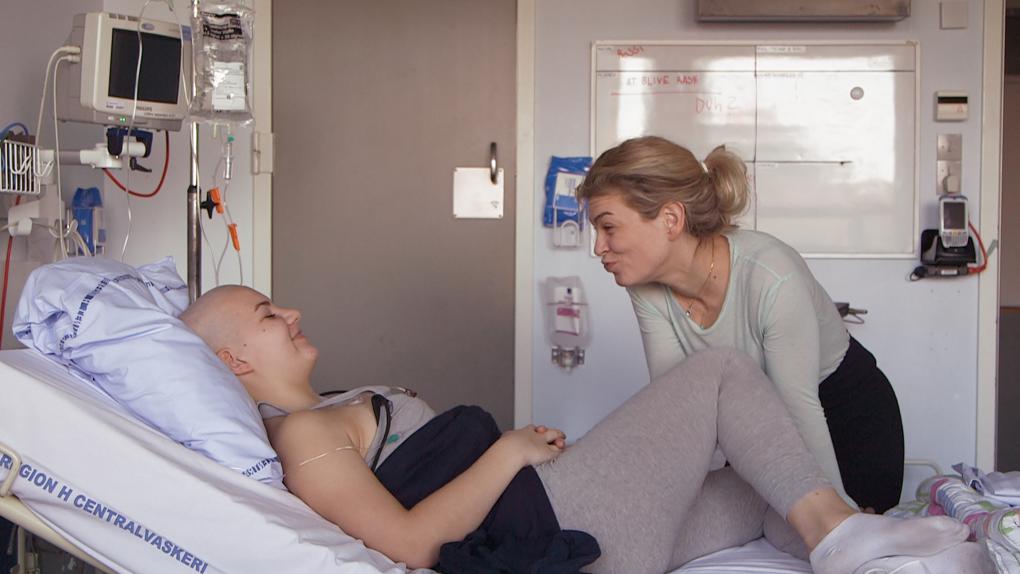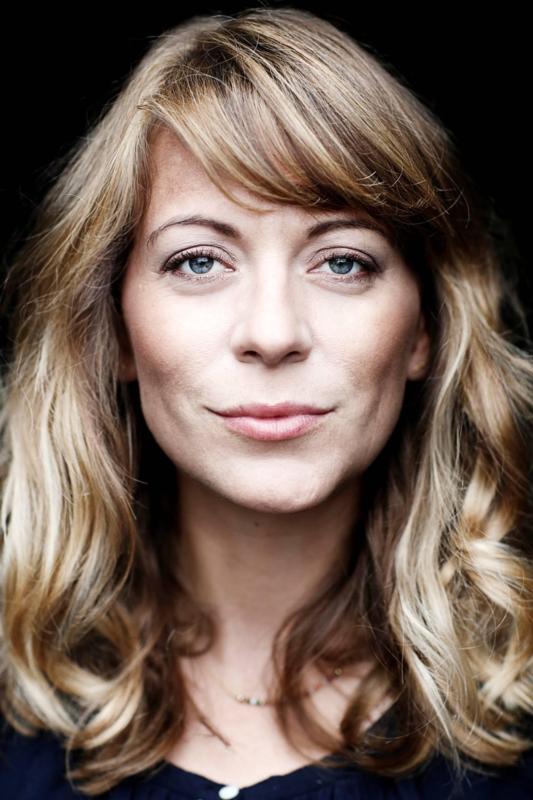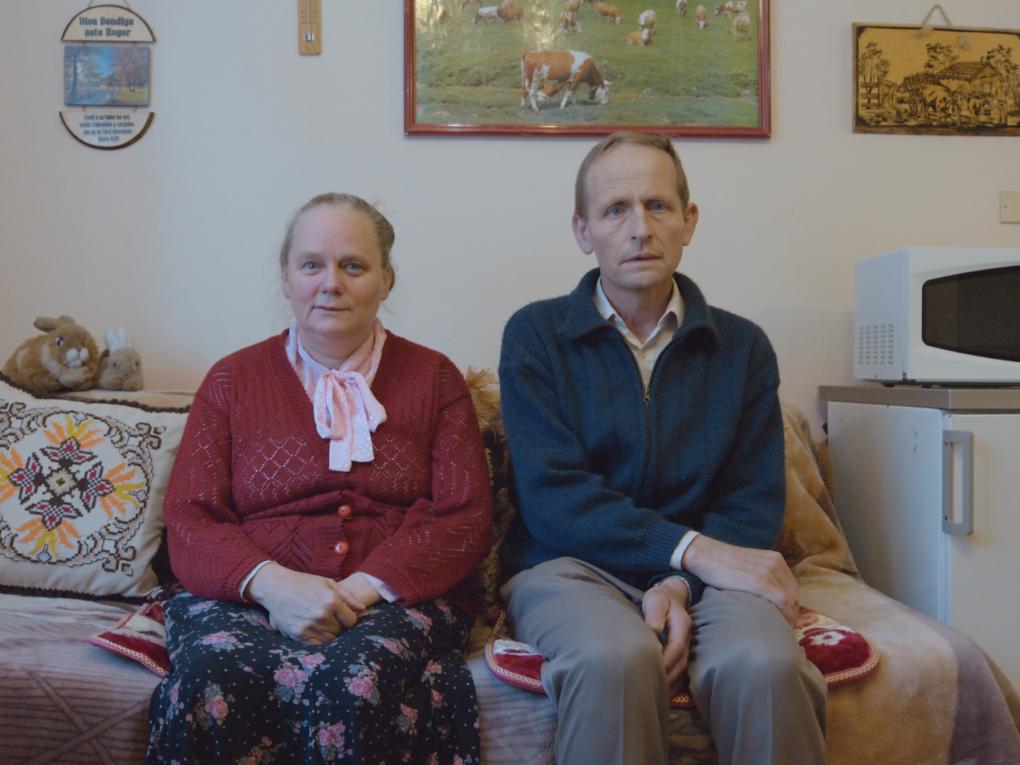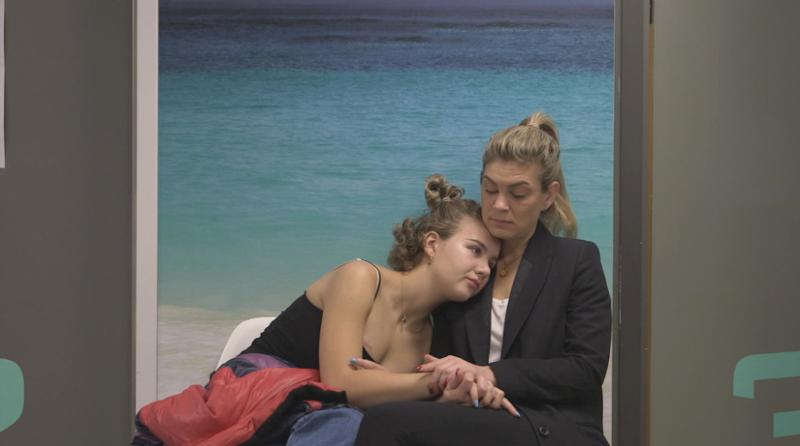Thirteen years have passed since Sine Skibsholt first trained her camera on Rosemarie, a four-year-old girl who had just been diagnosed with cancer. Skibsholt began filming Rosemarie for various exercises at the documentary filmmaking programme at the National Film School of Denmark and kept at it until Rosemarie started school.
"Rosemarie later told me that the footage I had made of her back then helped her a lot. She couldn’t really remember the sequence of events, and the footage was a big help for her in piecing together her story," Skibsholt says.
Rosemarie recovered, but 10 years later cancer reared its ugly head again. Her family got in touch with Skibsholt and asked her to document Rosemarie’s illness and life for the coming period.
Both hate and love
Skibsholt has turned the footage into her new documentary, 'Long, Live, Love', which premiered earlier this year in the main competition at CPH:DOX in Copenhagen and is now screening at IDFA, the International Documentary Filmfestival Amsterdam, where Skibsholt won the First Appearance award four years ago for Who We Were'.
'Long, Live, Love' is less about cancer and more about the unique bond between Rosemarie and her mother, Katrine, which was tested by the illness. Revolving around a similar theme, Skibsholt’s 2016 debut film looked at a married couple whose relationship changes after the husband suffers brain damage.
"As a starting point, I’m not interested in the disease itself but in how serious illness shakes up basic existential conditions and choices. My starting point in 'Long, Live, Love' is love and the relationship between a mother and daughter struggling through an unbearably tough time," the director says.
The film takes a close-up look at the conflicts that arise when Rosemarie gets sick again, and the strong bond of love that is worn thin by arguments about everything and nothing. It’s honest and vulnerable, as when Rosemarie, being a contrarian teenager, blames her mother for not dealing with her illness well enough.
"Like so many other teenagers, Rosemarie both loves and hates her mother in a rage of conflicts and arguments. But at the same, I also witnessed an intimacy and honesty between them that I don’t think a lot of teenagers and their parents manage to preserve," Skibsholt says.
Audience reactions
Once again, Skibsholt’s footage turned out to be a big help for Rosemarie, who got a clean bill of health in May 2018 after more than a year of illness. The images helped mother and daughter to see themselves from the outside and deal with the pain together.
"The film and the audiences’ reactions have been incredibly important for Rosemarie and Katrine’s relationship. Katrine recently told me that they have reached a place where they are able to tie a bow around the illness. Not that they can put it behind them, because it will always be there as a foundation for their life stories, but together they have closed the door on the conflicts brought on by the illness, both the first and second time around."
Audiences, Skibsholt says, have generally been fascinated by the experience of getting so close to a family’s most intimate space. And people who have personal experience with cancer say that it helped them to have a film show how complicated it is – both for the person who is sick and for their loved ones.
"I hope I have been able to portray a reality that’s not just black and white," Skibsholt says.
"When people find themselves in a crisis, there is no 'real' way to handle it. It’s like that with every crisis in life, and hopefully the film will remind us about that. We are all the protagonist of our own life, and I think we all need a narrative about ourselves through which to understand ourselves, our relationships and our challenges. Seeing yourself from the outside – witnessing a moment in time that is captured, and maybe even enhanced by the pain, frustration and joy of that moment – can help you process it."



